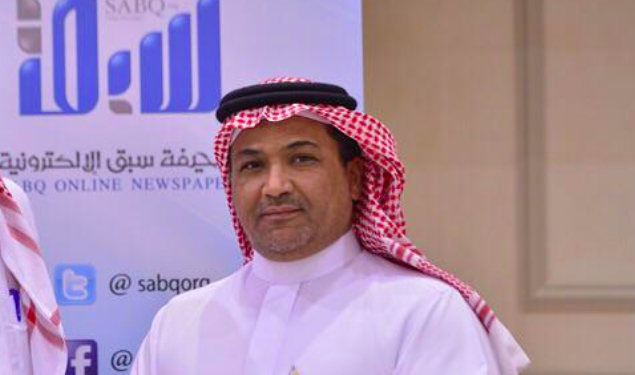
Human rights sources revealed that the authorities of the Saudi regime have been arbitrarily detaining, for several months, the president of the Board of Directors of the “Abaq” electronic network, Abdulaziz Al-Khuraiji, without any legal basis.
The sources stated that the graduate was subjected during the past week to a secret trial session in the Specialized Criminal-Terrorism Court, without clarifying any reasons for the arrest or his background, knowing that the graduate did not carry out any media or community activities for nearly two years.
The newspaper “Sabq” is one of the most prominent and oldest Saudi websites, and was founded in 2007.
Meanwhile, the journalist, Sami Al-Thebaiti, was brought before a specialized criminal court a week ago in secret, and he was an arbitrary and without legal basis for the September 2017 detainees.
Human rights activists also demanded the freedom of journalist Yazid Al-Fifi, who has been detained since the end of March 2019, for expressing his opinion and criticizing the spread of corruption in Fifa governorate.
Reporters Without Borders International ranks the Kingdom 172 out of 180 on the World Press Freedom Index in 2019 due to crimes and violations by the Saudi regime against journalists.
The international organization described the country as a country of “severe repression” against journalists, and said that there were no free media in the Kingdom.
The organization emphasized that journalists in the Kingdom were subject to strict surveillance, even if they were abroad, and this was confirmed by the assassination of Jamal Khashoggi in Istanbul (Turkey) in October 2018.
The organization noted that although Crown Prince Muhammad bin Salman pursued an opening letter when he took power in June 2017, the repression had been strengthened.
Since that date, the number of citizen journalists behind the bars has tripled, and the detention of most of them was arbitrary, and it was automatic torture for all prisoners of conscience.
The Criminal Code, as well as anti-terrorism and cybercrime laws in the Kingdom, require that journalists be imprisoned or suspended from work whenever they are issued with criticism or what constitutes interference in political matters (blasphemy, prejudice to religion, threatening national unity, or harming the image of the king and the state) and with all this, self-censorship is Al Qaeda even on social media.
And at the end of last year, an international committee placed the Kingdom at the top of the list of countries violating the rights of journalists due to the repressive policies of the Saudi regime.
The Committee to Protect Journalists issued its annual list of imprisoned journalists, in which the kingdom ranked third.
The Saudi regime is governed by an iron fist, which slams and oppresses journalists, imposing a system in the Kingdom based on restricting public freedoms, foremost of which is freedom of the press, which is expressed by the Kingdom’s position in the list of press freedom globally.
There are currently at least 30 national male and female journalists in arbitrary detention in Saudi prisons, who are formally identified with international organizations, while activists say the true number of secretly detained journalists and bloggers is in the hundreds.
The kingdom is one of the largest prisons for journalists in the world.